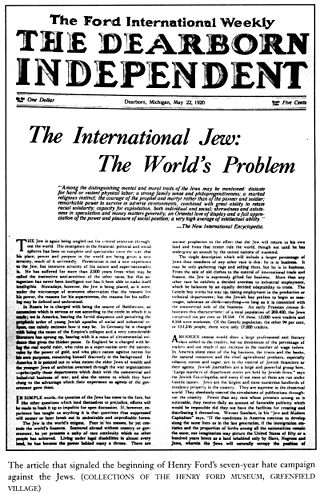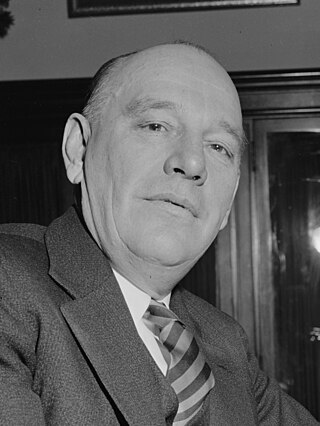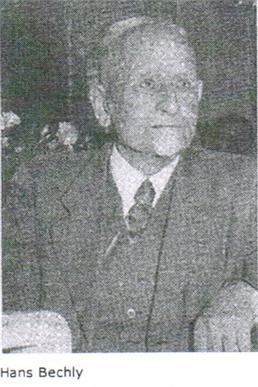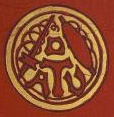Related Research Articles

The Nazi Party, officially the National Socialist German Workers' Party, was a far-right political party in Germany active between 1920 and 1945 that created and supported the ideology of Nazism. Its precursor, the German Workers' Party, existed from 1919 to 1920. The Nazi Party emerged from the extremist German nationalist, racist and populist Freikorps paramilitary culture, which fought against communist uprisings in post–World War I Germany. The party was created to draw workers away from communism and into völkisch nationalism. Initially, Nazi political strategy focused on anti–big business, anti-bourgeois, and anti-capitalist rhetoric; it was later downplayed to gain the support of business leaders. By the 1930s, the party's main focus shifted to antisemitic and anti-Marxist themes. The party had little popular support until the Great Depression, when worsening living standards and widespread unemployment drove Germans into political extremism.

The British Union of Fascists (BUF) was a British fascist political party formed in 1932 by Oswald Mosley. Mosley changed its name to the British Union of Fascists and National Socialists in 1936 and, in 1937, to the British Union. In 1939, following the start of the Second World War, the party was proscribed by the British government and in 1940 it was disbanded.

The Dearborn Independent, also known as The Ford International Weekly, was a weekly newspaper established in 1901, and published by Henry Ford from 1919 through 1927. The paper reached a circulation of 900,000 by 1925, second only to the New York Daily News, largely due to a quota system for promotion imposed on Ford dealers. Lawsuits regarding antisemitic material published in the paper caused Ford to close it, and the last issue was published in December 1927. The publication's title was derived from the Detroit suburb of Dearborn, Michigan.

Ernest Lundeen was an American lawyer and politician who served as a United States Senator from Minnesota between January 1937 to August of 1940, and as a Congressman from Minnesota's 3rd congressional district's between March 1933 to January 1937, as a member of the Minnesota Farmer–Labor Party. A veteran of the Spanish–American War, he got his beginning in politics when he served in the Minnesota House of Representatives from the 42nd district, between 1911-14. Originally elected as a Republican, he represented Minnesota's 5th congressional district for a single term between 1917-1919, and he'd go on to lose renomination in 1918 due to his opposition to American entry in World War I. He was killed in a plane crash near Lovettsville, Virginia, on the afternoon of August 31st, 1940, along with 25 others. At the time of his death, he was under FBI investigation due to his ties to Nazi Germany.
In the fourteen years the Weimar Republic was in existence, some forty parties were represented in the Reichstag. This fragmentation of political power was in part due to the use of a peculiar proportional representation electoral system that encouraged regional or small special interest parties and in part due to the many challenges facing the nascent German democracy in this period.
Jewish Bolshevism, also Judeo–Bolshevism, is an antisemitic conspiracy theory that claims that the Russian Revolution of 1917 was a Jewish plot and that Jews controlled the Soviet Union and international communist movements, often in furtherance of a plan to destroy Western civilization. It was one of the main Nazi beliefs that served as an ideological justification for the German invasion of the Soviet Union and the Holocaust.
Fascist movements in Europe were the set of various fascist ideologies which were practiced by governments and political organizations in Europe during the 20th century. Fascism was born in Italy following World War I, and other fascist movements, influenced by Italian Fascism, subsequently emerged across Europe. Among the political doctrines which are identified as ideological origins of fascism in Europe are the combining of a traditional national unity and revolutionary anti-democratic rhetoric which was espoused by the integral nationalist Charles Maurras and the revolutionary syndicalist Georges Sorel.

ROH, was a communist national trade union centre in Czechoslovakia 1945-1990. In Communist Czechoslovakia (1948-1989) it was a monopolistic trade union, wherein the membership was often mandatory for employees of state industries.

The Italian racial laws, otherwise referred to as the Racial Laws, were a series of laws which were promulgated by the Council of Ministers in Fascist Italy (1922–1943) from 1938 to 1943 in order to enforce racial discrimination and segregation in the Kingdom of Italy. The main victims of the Racial Laws were Italian Jews and the native African inhabitants of the Italian colonial empire (1923–1947). In the aftermath of Mussolini's fall from power, the Badoglio government suppressed the Racial Laws in the Kingdom of Italy. They remained enforced and were made more severe in the territories ruled by the Italian Social Republic (1943–1945) until the end of the Second World War.
The Free Trade Unions comprised the socialist trade union movement in Germany from 1890 to 1933. The term distinguished them from the liberal ("yellow") and Christian labor unions in Germany. Coordinated by the General Commission of German Trade Unions until 1919 and later by the General German Trade Union Federation, the Free Trade Unions consisted of forty-six individual labor organizations with a total of 2.5 million members as of 1914. The term "free" was to note that these unions were independent worker organizations. The liberal ("yellow") unions were considered to be controlled by management and the "Christian" trade unions by the Catholic Church.

The Nationalist Liberation Alliance, originally known as the Argentine Civic Legion from 1931 to 1937, the Alliance of Nationalist Youth from 1937 to 1943, and then using its final name from 1943 to 1955, was a Nacionalista and fascist movement.
The Trade Unions of Albania was a mass organization of the Party of Labour of Albania during the socialist period which represented the interests of the working class in industry. Like other mass organizations it was a member of the Democratic Front.
Anti-Jewish boycotts are organized boycotts directed against Jewish people to exclude them economical, political or cultural life. Antisemitic boycotts are often regarded as a manifestation of popular antisemitism.
Antisemitism in the United Kingdom signifies hatred of and discrimination against Jews in the United Kingdom. Discrimination and hostility against the community since its establishment in 1070 resulted in a series of massacres on several occasions and their expulsion from the country in 1290. They were readmitted by Oliver Cromwell in 1655.

Hans Georg Wilhelm Bechly (1871–1954) was a German labor leader and trade unionist.

The Centre Party, or the Centre Reform Group, and occasionally referred to as the Centre Movement, was a short-lived extreme-right political party that operated in the Australian state of New South Wales. Founded in December 1933, the party's leader and most prominent figure was Eric Campbell, the leader of the paramilitary New Guard movement. That organisation had been established to oppose what its members perceived as the socialist tendencies of Jack Lang, the Premier of New South Wales, but declined following Lang's dismissal in early 1932. The party, unlike most fascist-oriented parties in Europe, acted as a wing of its more prominent paramilitary arm.
The World Committee Against War and Fascism was an international organization sponsored by the Communist International, that was active in the struggle against Fascism in the 1930s. During this period Adolf Hitler came to power in Germany, Italy invaded Ethiopia and the Spanish Civil War broke out. Although some of the women involved were Communists whose priority was preventing attacks on the Soviet Union, many prominent pacifists with different ideologies were members or supporters of the committee. The World Committee sponsored subcommittees for Women and Students, and national committees in countries that included Spain, Britain, Mexico and Argentina. The Women's branches were particularly active and included feminist leaders such as Gabrielle Duchêne of France, Sylvia Pankhurst of Britain and Dolores Ibárruri of Spain.
The German Social Party was a far-right political party active in the German Empire.

The Kingdom of Italy was governed by the National Fascist Party from 1922 to 1943 with Benito Mussolini as prime minister. The Italian Fascists imposed totalitarian rule and crushed political and intellectual opposition, while promoting economic modernization, traditional social values and a rapprochement with the Roman Catholic Church.

The German Textile Workers' Union was a trade union representing workers in the textile industry in Germany.
References
- ↑ Patch, William L. (1985). Christian Trade Unions in the Weimar republic 19-18-1933: The Failure of "Corporate Pluralism". new Haven: Yale University Press. ISBN 0300033281.
- ↑ Joan Campbell. European labor unions. Wesport, Connecticut, USA: Greenwood Press, 1992. pp. 163–164.
- ↑ Larry Eugene Jones, James N. Retallack. Between Reform, Reaction, And Resistance: Studies in the History of German Conservatism from 1789 to 1945. Berg, 1993, p. 20.
- ↑ Matthew Lange. Antisemitic anticapitalism in German culture from 1850-1933. University of Wisconsin-Madison, 2006, p. 224.
- ↑ Peter Davies, Derek Lynch. The Routledge companion to fascism and the far right. London, England; New York, New York, USA: Routledge, p. 4.
- ↑ Guido, Diane J. (2010). The German League for the Prevention of Women's Emancipation: Anti-Feminism in Germany, 1912-1920. Peter Lang. p. 57. ISBN 9781433107849.
- ↑ Matthew Lange. Antisemitic anticapitalism in German culture from 1850-1933. University of Wisconsin-Madison, 2006. pp. 224.
- ↑ Joan Campbell. European labor unions. Wesport, Connecticut, USA: Greenwood Press, 1992, p. 164.
- ↑ Joan Campbell. European labor unions. Wesport, Connecticut, USA: Greenwood Press, 1992. pp. 163–164.